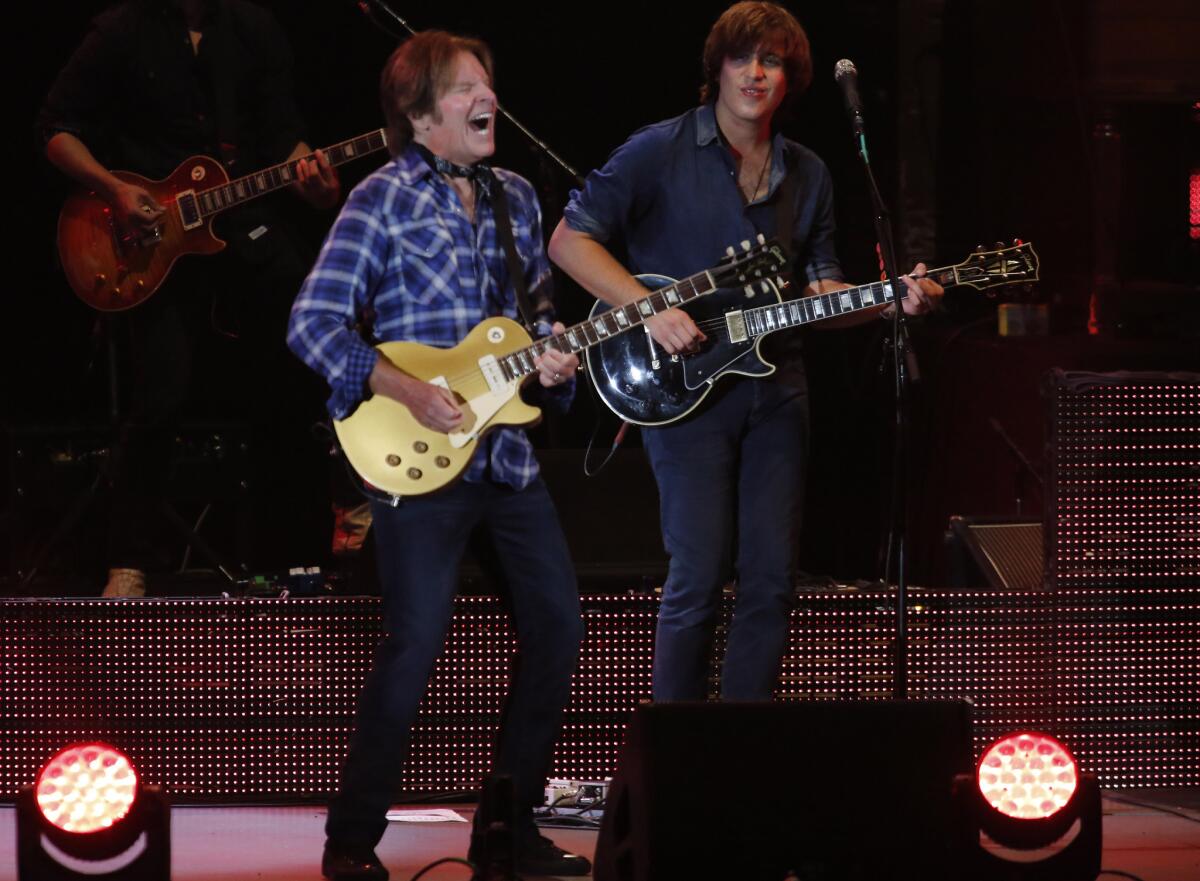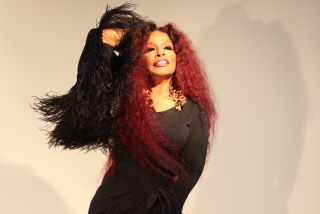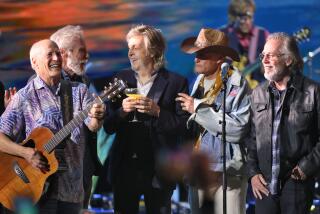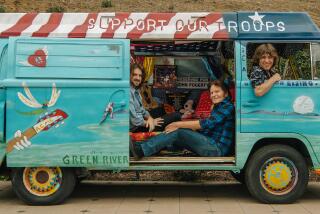Perspective: John Fogerty rushes back to â1969â at the Bowl

John Fogerty is joined onstage at the Hollywood Bowl by his son Shane, right.
The past is a nice place to visit, but you wouldnât want to live there.
Fortunately, while John Fogertyâs â1969â tour, which stopped Wednesday at the Hollywood Bowl, was built around the remarkable string of hit albums he released with Creedence Clearwater Revival that year, it also included enough of what heâs done in the ensuing 46 years to let the audience know the clock hasnât stopped for him yet.
The Rock and Roll Hall of Fame singer, songwriter and guitarist revisited touchstone songs including âProud Mary,â âBorn on the Bayou,â âWhoâll Stop the Rain,â âGreen River,â âDown on the Cornerâ and more than a dozen others that made Creedenceâs music such a breath of fresh air at the time.
------------
FOR THE RECORD
John Fogertyâs son: A photo caption with an earlier edition of this post misidentified which of John Fogertyâs sons played in his band at the Hollywood Bowl. Shane Fogerty accompanied his father, not Tyler Fogerty.
------------
The songs remain exquisite examples of concise pop songwriting, compositions that both celebrate the joys of rural life in ways that contemporary country music only awkwardly approaches these days, and serve up razor-sharp political commentary that remains relevant today.
Underscoring the showâs theme, Fogerty opened with a nearly 20-minute film segment splicing together footage of many landmark social and political events of the time â the first manned moon landing, Woodstock, the Vietnam War â with interview footage of his recollection of what that time meant to him personally and professionally. This placed his work into a cultural context, acting as a reminder of what an extraordinary time it was on many fronts.
From the conceptual perspective, Fogertyâs â1969â is a winner. The execution, however, was the sticking point throughout the evening. In his haste to demonstrate how much passion he retains for this material -- and his ability, at 70, to race around a stage and crank out high energy rock ânâ roll -- he often slighted the songs by delivering them at tempos too fast for their (and his) own good.
In Creedence, Fogerty and his band often concocted delicious swamp grooves for lyrics that felt born of the bywaters of Louisiana and the American South that produced so much of the early rock ânâ roll he grew up loving, even though he soaked it in from afar in the Bay Areaâs El Cerrito.
That groove is a delicate thing, but Fogerty and his muscular five-piece band, which includes his son, guitarist-singer Shane Fogerty, often steamrolled over the evanescent qualities that made the original versions so infectious.
In particular, celebrated session and touring drummer Kenny Aronoff pushed beats forward rather than remaining a microsecond behind to give the songs room to breathe. Fogerty often seemed challenged to fit all the words in at the accelerated pace, and many of his inspired guitar riffs consequently got short shrift. Faster and louder doesnât necessarily equate with better.
Given the continued bad blood between Fogerty and the two surviving members of Creedence â bassist Stu Cook and drummer Doug Clifford, who sued Fogerty in December and whom he countersued this week â it was no surprise there was no mention of their names during the evening.
Nevertheless, Fogerty possesses one of the most rewarding bodies of work in all of rock music. For this reporter, who first experienced Creedence live in 1970 at the Forum in Inglewood shortly after the group released its biggest album, âCosmoâs Factory,â Fogertyâs music holds a particularly special place.
Itâs a place we shouldnât have to be hurried through.
Follow @RandyLewis2 on Twitter. For more on Classic Rock, join us on Facebook.
More to Read
The biggest entertainment stories
Get our big stories about Hollywood, film, television, music, arts, culture and more right in your inbox as soon as they publish.
You may occasionally receive promotional content from the Los Angeles Times.











